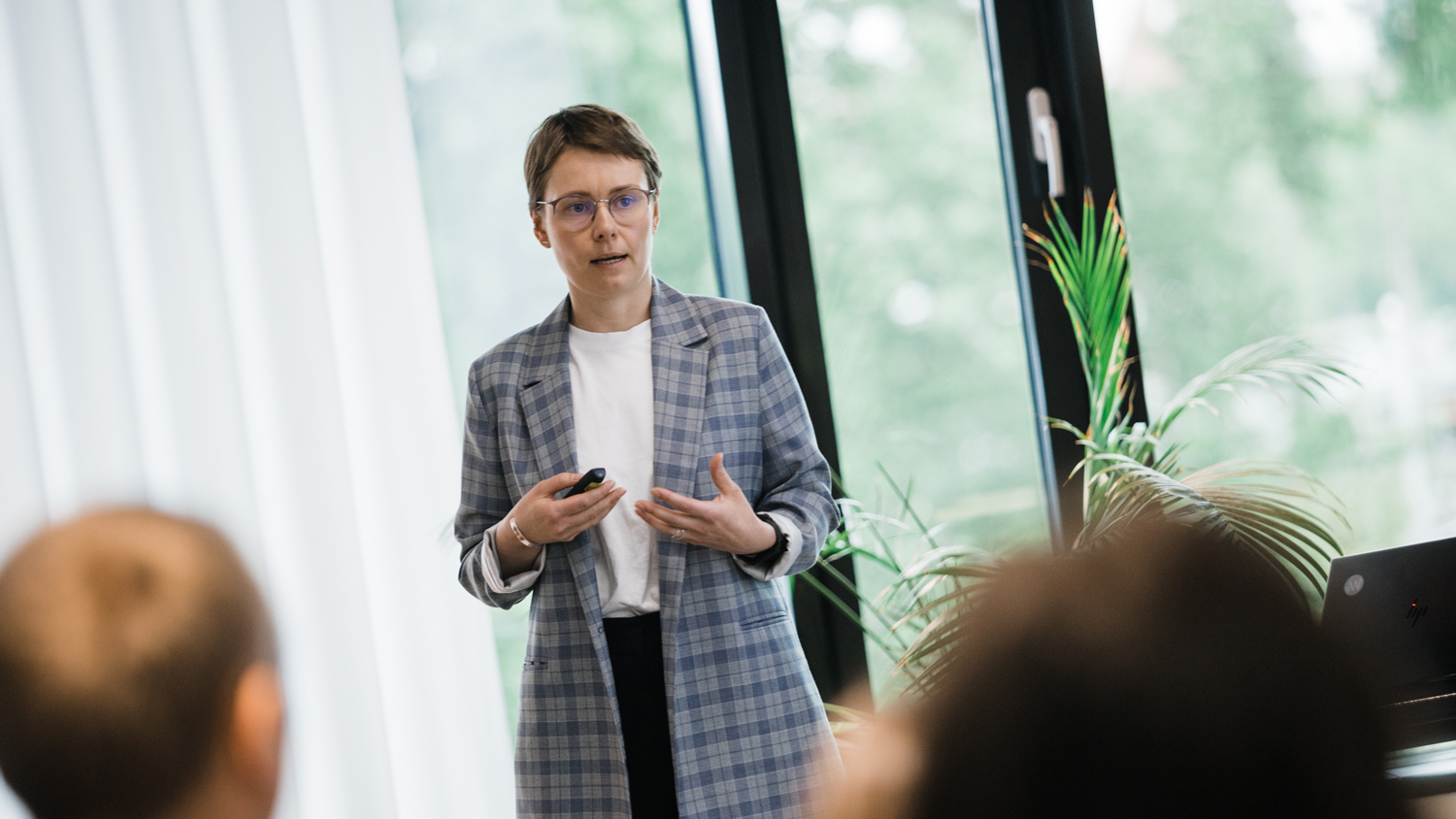Existing business practices are being replaced by new, more sustainable approaches, driven by stronger environmental protection regulations, says Helen Tammemäe, ESG Strategy Consultant at Miltton. Among these is the European Union’s Corporate Sustainability Reporting Directive, which requires businesses to assess the impact of their activities on people, society, and the environment and report on it.
Over and over again in the climate debate, the argument is that we cannot stop oil shale mining, reduce deforestation, or take any other action because we have to first consider how these actions affect the economy, corporate competitiveness, and people’s well-being. But have we considered how the deepening climate crisis affects the economy, including corporate competitiveness and people’s well-being? According to Swiss Re, one of the world’s largest insurance companies, climate change poses the greatest long-term threat to the global economy, and ignoring it is not an option. The insurance giant estimates that by 2050, this could lead to an annual reduction of around 23 trillion dollars in the global economy, not to mention the unforeseen costs of fighting droughts, floods, forest fires, and more.
Adapting to the ongoing environmental crisis will undoubtedly be economically painful – at least according to the prevailing economic paradigm so far. However, this does not necessarily mean that profit-making has come to an end. Metaphorically speaking, if business profit has so far been derived from digging a hole, then in the future, revenue must come from solutions that help us climb out of that hole. And there are plenty of earning opportunities, as the scale of this hole is truly global.
Clear and understandable sustainability
A few weeks ago, Tallink CEO Paavo Nõgene made a statement that the EU’s more assertive environmental protection regulations are unreasonable bureaucracy. President Alar Karis also criticized the European Union’s Corporate Sustainability Reporting Directive (CSRD) in his Republic Day speech, which requires businesses to assess the impact of their activities on people, society, and the environment and report on it. However, the idea behind it is to provide an overview of the greatest bottlenecks and the sectors that need the most help in transitioning to a greener economy, where to direct investments, and find solutions for a more sustainable way of life – in Estonia, the European Union, and globally. The report itself is standardized and must be machine-readable – its purpose is to standardize sustainability-related information and principles. Imagine if every organization could present its financial statements as it understands them. Why should sustainability then remain open to interpretation? Clearly, no one came up with this idea just because someone loves doing additional paperwork. We all despise it.
Even Paavo Nõgene has clarified his position on social media, stating that he does not question the need for sustainability reporting, but rather the extensive standards of the report. On the other hand, we must acknowledge that finding simple solutions to solving the climate crisis is challenging – it is a complex and incomprehensible issue that affects many factors beyond just a company’s carbon emissions. Preparing for this report for the first time will undoubtedly require effort from businesses, but once the data is flowing, the likely near-term perspective is that the entire reporting process will be data-based and automatically assisted by artificial intelligence. This data should be a given for any responsible company seriously evaluating its ESG (Environmental, Social, Governance) impact. This is the data-driven economy we talk about ambitiously at conferences. And this could be the next step in the success story of our so-called digital nation.
For Estonian businesses, sustainability reporting offers an opportunity to gain an overview of their actual impacts, including from the perspective of their entire supply chain, to adopt data-driven management, and to use sustainability reporting to create their corporate responsibility strategy. Lastly, this opens doors to attracting investments. Equally important is the fact that for various stakeholders, fact-based information about a company’s sustainability is becoming increasingly significant – whether for investors, employees, or customers. It is no longer sufficient for a company’s marketing department to write compelling narratives and pair them with picturesque images. Especially in environmental matters, people are tired of words that lack substance.
A crisis we don’t want to live in
In my opinion – and this view is based on the opinions of many world scientists – the worsening environmental crisis is a significantly more terrifying fact than the more assertive regulations enacted to protect the environment. Our living environment is gradually becoming uninhabitable. Climate warming is still in full swing, and the latest report from the United Nations Intergovernmental Panel on Climate Change (IPCC) emphasizes once again the clear causal relationship between climate change and human impact. The world is currently experiencing the sixth mass extinction of species in its history, comparable to when dinosaurs went extinct – for example, according to the 2022 report from BirdLife International, 49% of bird species are declining, and every eighth bird species is at risk of extinction. The prospect of not having enough clean drinking water or food for everyone, unpredictable weather conditions destroying homes and forcing people to seek habitable places on a massive scale, and more, is horrifying – this is not only an ecological crisis but also a social catastrophe. And it is not a dystopian prediction of the future, but an ongoing process. The United Nations Sustainable Development Goals, the Paris Agreement, and the European Green Deal are diplomatic steps to halt and reverse this process.
The fact that we Estonians geographically live in an area where the direct impacts of severe climate change are not yet strongly felt (although this is debatable) does not mean that it does not affect us. As mentioned, the cascading effects of climate change are already being felt, whether in terms of energy crises, refugee crises, or resource competition. The world is interconnected, and so distant climate changes will clearly affect Estonia as well. According to the Estonian Development and Foresight Centre’s 2023 report “The Average Environmental Footprint of Estonian and European Residents,” the environmental behaviour of Estonians is rather unexemplary – the average Estonian consumption exceeded the Earth’s carrying capacity by 3.8 times in 2019, and unfortunately, this translates into all areas of life. Even if we cannot complain about awareness of environmental issues, we have taken just a few actual steps towards a green transition. The fact that Estonian companies have not yet taken significant steps to combat the climate crisis on a larger scale (or have not been able to do so for various reasons) shows that change can only occur on a larger scale through regulations, external pressure, and additional investment.
Leaders, not followers
Both the European Union and the Estonian government have a duty to provide supportive systems to businesses to ensure that this transition is as fast and painless as possible, but readiness for these changes must still come from the business sector itself. However, why not also the initiative? Fortunately, over sixty Estonian companies with a broader perspective, members of the Green Tiger initiative, or partners, signed a joint statement last December, encouraging the government, political parties, and the media to make the green transition a priority for the coming years and to help society understand its importance. So, the European Union’s Corporate Sustainability Reporting Directive will not land on empty ground in Estonia. We still have visionaries who seek solutions and do not give up in the face of seemingly insurmountable problems.
In conclusion – this is not an economic crisis if we start paying a fair price for essential ecosystem services and decide to invest in sustainable development, even if it requires changing business practices, people’s beliefs, and habits. And undoubtedly, the winners here will be those who can adapt to new circumstances better and utilize the opportunities that arise from this.




